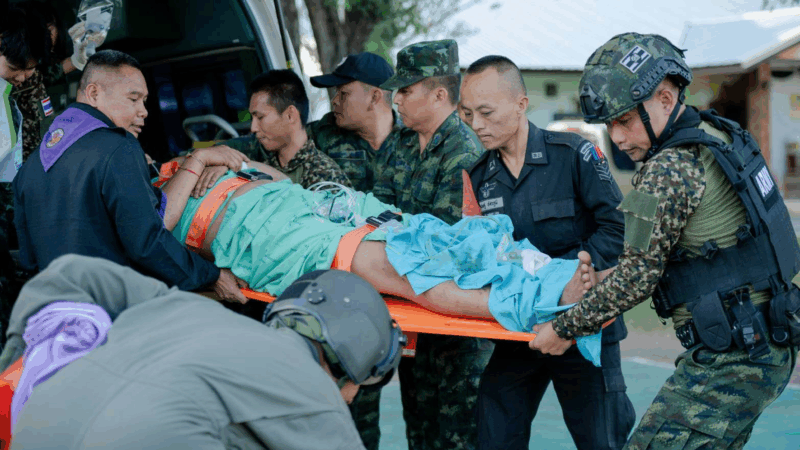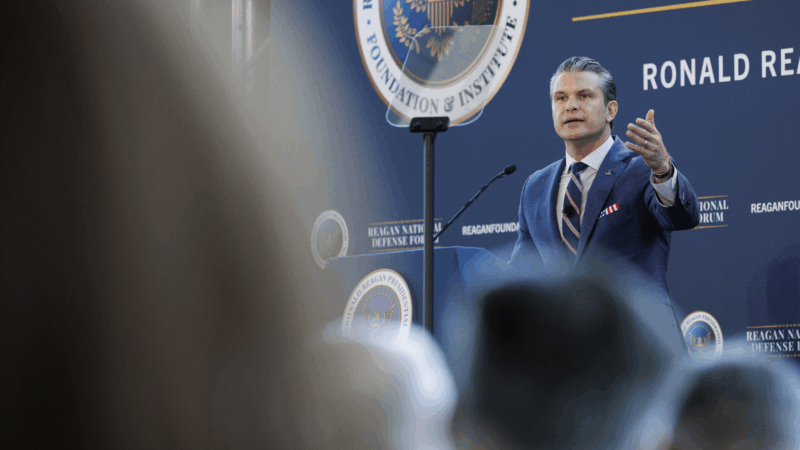Trump administration cancels $400 million in federal dollars for Columbia University
The Trump administration says it has canceled $400 million in federal grants and contracts to Columbia University over what it described as the school’s failure to police antisemitism on campus.
The cancellation was announced Friday in a joint statement from the Department of Justice, Department of Health and Human Services, Department of Education and the U.S. General Services Administration. The decision was carried out, the statement said, “due to the school’s continued inaction in the face of persistent harassment of Jewish students.”
It’s unclear what programs at the school may be affected by the cancellation. The statement said the funding pullback was “the first round of action” and that “additional cancellations are expected to follow.” The government also said Columbia holds more than $5 billion in federal grant commitments.
In a statement to NPR, a Columbia spokesperson said the school was reviewing the announcement and pledged “to work with the federal government to restore Columbia’s federal funding.”
“We take Columbia’s legal obligations seriously and understand how serious this announcement is and are committed to combating antisemitism and ensuring the safety and wellbeing of our students, faculty, and staff.”
The administration’s announcement marked the latest turn in the long-running fallout at Columbia over its response to campus protests sparked by the war in Gaza between Israel and Hamas. As the protests unfolded, Columbia came under heavy criticism from Republicans in Congress — as well as some Democrats — who said the university was failing to protect Jewish students from antisemitism. Many of those alleged acts of antisemitism were first reported by the Columbia Spectator.
Last spring, the school administration publicly clashed with pro-Palestinian student demonstrators who demanded the university sell off its investments in companies that have ties to Israel. In April, as the protests continued, the university ultimately shifted all classes to remote-only for the rest of the term. Four months later, the university’s president, Minouche Shafik, resigned following a tenure that lasted little more than a year and was largely defined by the protests.
President Trump has been highly critical of pro-Palestinian protests on campus. Within days of returning to office, Trump signed an executive order calling on the Department of Justice to “investigate and punish anti-Jewish racism in leftist, anti-American colleges and universities.”
Columbia is one of 10 universities that the Department of Justice has said it is investigating following allegations that the schools “may have failed to protect Jewish students and faculty members from unlawful discrimination.”
Tributes, not politics, play center stage as Trump hosts the Kennedy Center Honors
President Trump said he was closely involved with picking the honorees, and on Sunday he became the first president to host the Kennedy Center awards ceremony.
Thailand launches airstrikes along border with Cambodia as tensions reignite
Both sides accused the other of breaking a ceasefire that halted fighting earlier this year. Longstanding border disputes erupted into five days of combat in July that killed dozens.
Rafael Ithier, a legend of salsa music, dies at 99
The pianist, composer and arranger spent more than six decades turning El Gran Combo into one of the premier salsa institutions of Latin America and beyond.
Light from satellites will ruin majority of some space telescope images, study says
Astronomers have long been concerned about reflections from satellites showing up in images taken by telescopes and other scientific instruments.
Defense Department is reviewing boat strike video for possible release, Hegseth says
In a speech on Saturday, Defense Secretary Pete Hegseth defended the strikes, saying: "President Trump can and will take decisive military action as he sees fit to defend our nation's interests."
Bama, Miami in, Notre Dame out and Indiana No. 1 in College Football Playoff rankings
Nobody paying attention for the past 24 months would be surprised to see Indiana – yes, Indiana – leading the way into this year's College Football Playoff.









